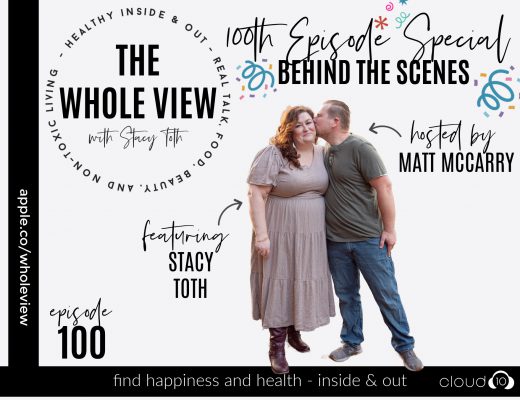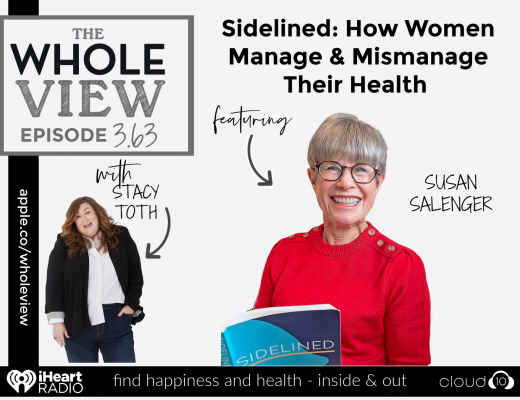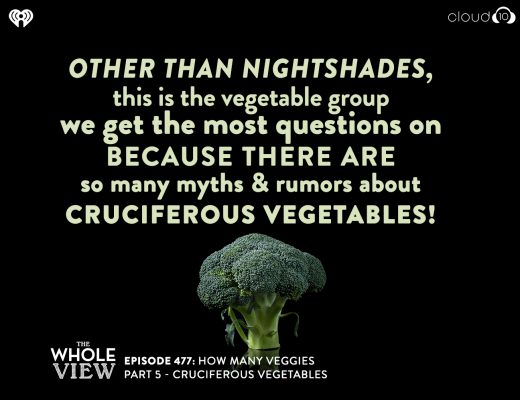Welcome journalist and author Virginia Sole-Smith to The Whole View! This week, Stacy and Virginia break down anti-fat bias, the problem with body positivity, and giving our children the gift of body autonomy and safety in the age of diet culture.
Trigger warning: We will be talking about diet culture and all associations and derivatives of it, including disordered eating. Please be mindful and take care of your needs accordingly.
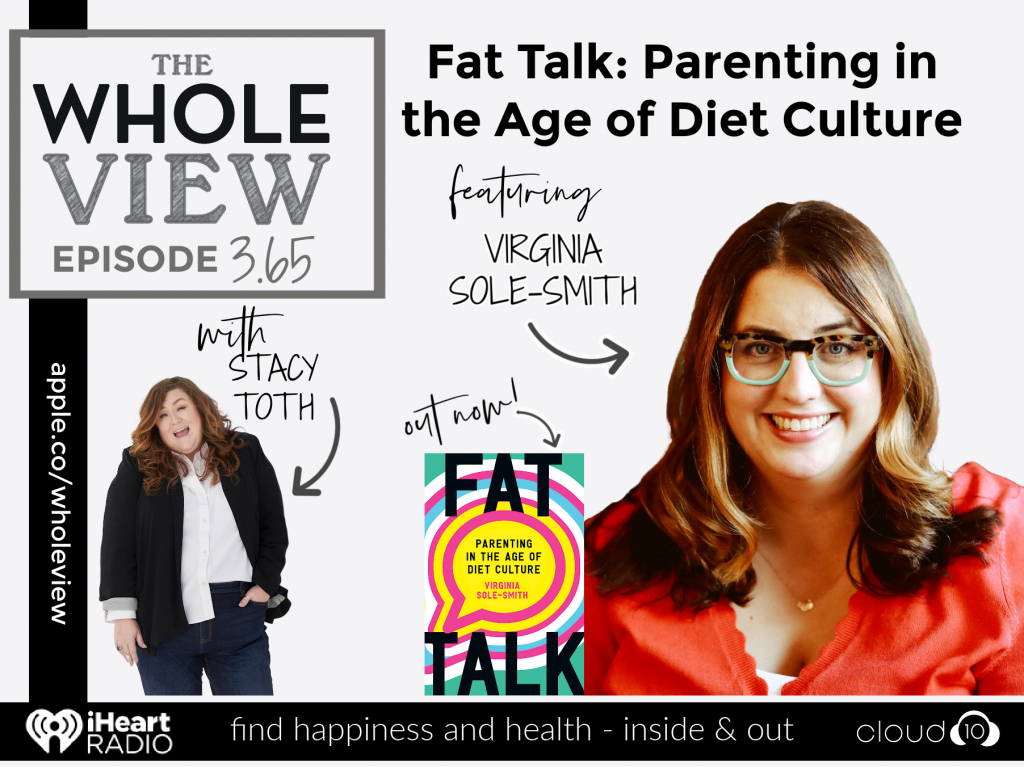
Find Virginia:
If you enjoy the show, please leave a review. Letting people know on iTunes or however you listen that it’s worth their time could change someone’s life!
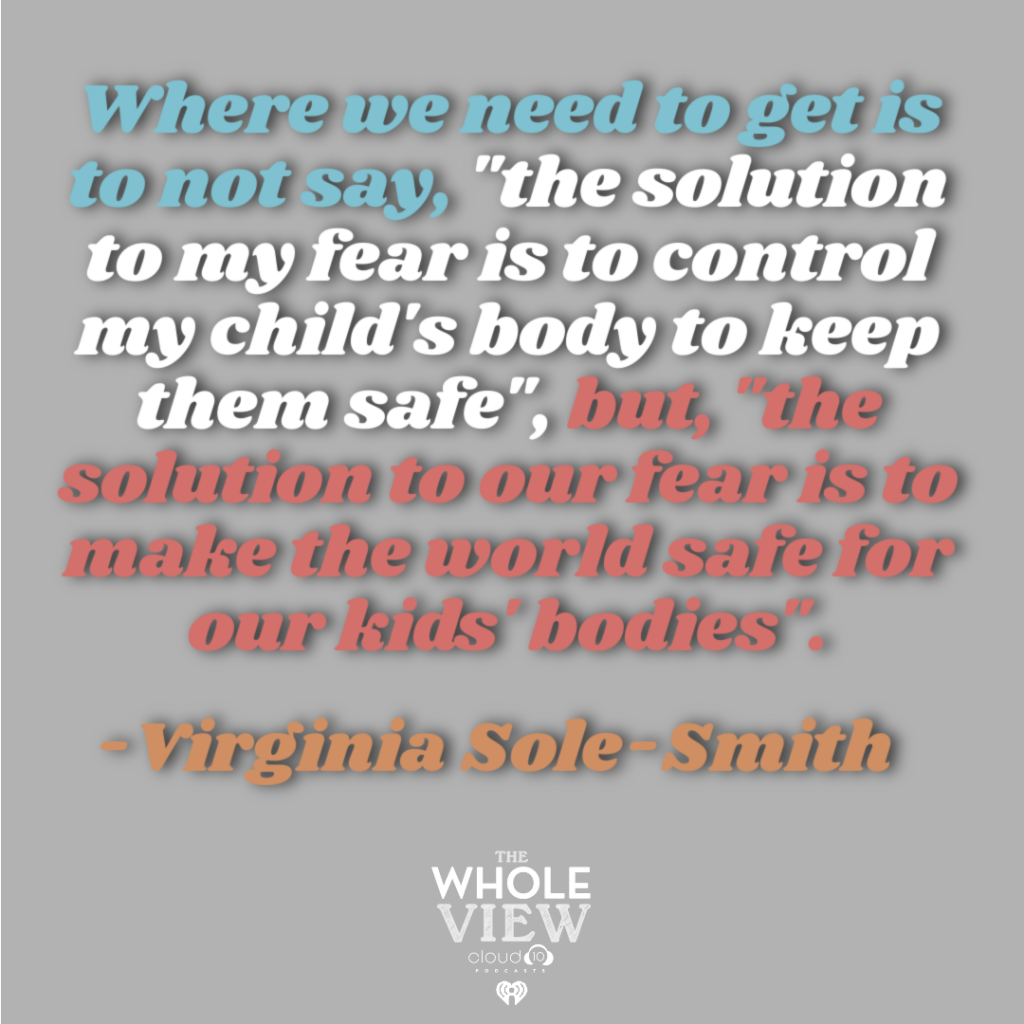
Key Takeaways
Introductions
- Virginia is a journalist and began her career in women’s magazines, alternatively challenging beauty standards and gender norms, and upholding diet culture through her health, nutrition and fitness reporting.
- She is a frequent contributor to the New York Times. Her work also appears in the New York Times Magazine, Scientific American, and many other publications.
- Additionally, she writes the newsletter Burnt Toast, where she explores fatphobia, diet culture, parenting and health, and also hosts the Burnt Toast Podcast. Virginia lives in New York’s Hudson Valley with her husband, two daughters, a cat, a dog, and way too many houseplants.
Parenting in the Age of Diet Culture
- Virginia quotes Aubrey Gordon, “Oppressive behavior isn’t the same as a phobia. Phobias are real mental illnesses and conflating them with oppressive attitudes and behaviors invites greater misunderstanding and mental illness and the people who have them.” Virginia discussed the terms “anti-fat bias” and “fat-phobia” and how she uses them in her work and in relationship to parents.
- Starting to recognize diet culture and anti-bias, realizing how prevalent it is, and then figure out where you can divest from it and dismantle it, that’s the real work.
- Weight is the number one reason girls are bullied, and the number two reason boys are bullied in schools. Furthermore, childhood dieting is the leading cause of future eating disorders
- Bodies come in all shapes and sizes. There’s no bad way to have a body. We shouldn’t be attaching moral value to body size.
- While body positivity had roots in fat-acceptance and fat liberation movement in the 70s, in our current day, body positivity and wellness culture are really just diet culture 2.0.
- Body positivity became about loving your body, but in social media it’s often still centering the concept of beauty. Beauty and hotness are options. And your value has nothing to do with your aesthetics. Broadening the definition of beauty is not going to get fat people better healthcare, it’s not going to be what prevents weight discrimination, and it doesn’t move the needle on these larger social issues.
- Diet culture views weight as something we have complete control over and it’s our personal project. Body size is 60% genetic and there are large social determinants of health. Because there’s not enough research, we don’t understand how chronic hunger, chronic oppression, and poverty affects weight.
Next Steps
- Virginia has many suggestions in her book on page XIX, “How to Have the Fat Talk”, including some of the below.
- Ask yourself, what are you doing as a family to foster body autonomy and body safety?
- Shifting priorities doesn’t mean things like nutrition don’t matter.
- Especially for little girls, you can give them control over their appearance, not just body size, such as letting them pick out outfits. So wearing something they feel good in is better than “looking pretty”.
- Increase fat representation and body diversity, and use the word fat.
- Additionally, remove negative connotations about weight and adjust your own language about how you talk about yourself – your kids are listening!
- Set boundaries with pediatricians about talking about weight around your children.
- Have go-to phrases and responses to relatives who bring up weight.
- Are you teaching manners or bias? Isn’t it cool bodies come in all sizes? We don’t talk about bodies, skin color, freckles, etc without consent.
- If your kid is expressing “do I look fat” you can respond with something such as “you look great, but is fat something you’re worried about” and dig into what’s going on for them.
- If they are in a bigger body, don’t be afraid to name it. Make space for their emotions about it. Using phrases like “you’re not fat, you’re beautiful” is both making the conversation about the value of beauty and also not being honest.
Studies, References & Products
- Fat Talk: Parenting in the Age of Diet Culture by Virginia Sole Smith
- UNC School of Medicine: Eating Disorder Statistics
- The Whole View:
- Ep 421: Body Image
- Eps 471 &472: The Harm of Weight Discrimination and Stigma Part 1 & Part 2
- Ep 499: Genetics, Epigenetics, and Social Determinants of Health
- The Whole View, Season 3, Ep 45: Weight Discrimination in the Workplace w/ Dannie Lynn Fountain
Sponsors
- TryNom.com/WHOLEVIEW | Get 50% off your no-risk 2-week trial
- Indeed.com/WHOLEVIEW | Get a $75 sponsored job credit
- JustThriveHealth.com/discount/wholeview | Use code WHOLEVIEW for 15% off sitewide
Want more info on our Real Life? Healthy recipes, parenting tips, and general lifestyle stuff goes out in our Real Everything newsletter, join here.

